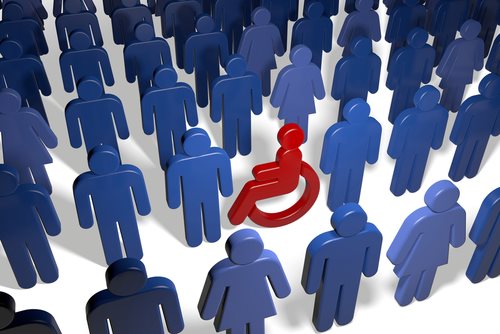
Minnesota Landlord Charged with Discriminating Against Disabled Tenant
A Minnesota landlord has been charged with violating the state’s Fair Housing Act by discriminating against a tenant with a disability. The charges were brought by the Minnesota Department of Human Rights, which investigated allegations that the landlord refused to rent a property to a tenant who uses a wheelchair due to her disability.
According to the complaint, the landlord, who owns several rental properties in Minneapolis, refused to rent a two-bedroom apartment to the tenant because she uses a wheelchair and required modifications to the bathroom to make it accessible. The landlord claimed that the tenant was not “”the right fit”” for the property and that he would not be willing to make the necessary modifications.
The tenant, who has multiple sclerosis, had been searching for a new place to live after her previous landlord failed to make necessary repairs to her current apartment. She contacted the landlord, who showed her around several properties, including the two-bedroom apartment in question. However, after learning about her disability and the need for modifications, the landlord told her that she would not be able to rent the property.
The Minnesota Department of Human Rights launched an investigation into the matter after receiving a complaint from the tenant. The investigation found that the landlord had violated the state’s Fair Housing Act by refusing to rent to the tenant based on her disability. The act prohibits discrimination in housing based on race, color, creed, sex, marital status, familial status, national origin, religion, age, receipt of public assistance, or disability.
“”This is a clear violation of Minnesota’s anti-discrimination laws,”” said Minnesota Commissioner of Human Rights Kevin Lindsey. “”We will not tolerate discrimination against individuals with disabilities in our state’s housing market.””
The charges against the landlord include allegations of discrimination based on disability and failure to provide reasonable accommodations. The case will be heard in district court and could result in fines and penalties if found guilty.
This case highlights the importance of understanding and complying with anti-discrimination laws in Minnesota. Landlords have a legal obligation to provide reasonable accommodations to tenants with disabilities, such as installing handrails or ramps, modifying appliances, or providing auxiliary aids such as closed captioning or assistive listening devices.
For tenants with disabilities, finding affordable and accessible housing can be a significant challenge. According to a report by the National Fair Housing Alliance, people with disabilities are more likely to experience housing discrimination than any other protected class. This is often due to landlords’ lack of understanding about disability rights and responsibilities.
The Minnesota Department of Human Rights is urging all landlords and property managers in the state to review their policies and procedures to ensure compliance with anti-discrimination laws. “”We want to educate landlords about their responsibilities under state law and ensure that all Minnesotans have equal access to housing opportunities,”” said Lindsey.
In conclusion, this case serves as a reminder that discrimination against individuals with disabilities will not be tolerated in Minnesota. Landlords must comply with anti-discrimination laws and provide reasonable accommodations to tenants with disabilities. For tenants with disabilities, it is essential to know their rights and advocate for themselves in order to secure safe and accessible housing.
On September 25, 2012, the US Department of Housing and Urban Development (HUD) stated that a property owner in Grand Rapids, Minnesota, was charged for violating the Fair Housing Act. The property owner operates the Jay’s Hilltop Rentals.
The charges stem from the property owner denying tenancy to the disabled woman because she required a support animal. Basically, the Fair Housing Act states that a property owner needs to make reasonable accommodations in its leasing guidelines and the services on the property if the tenant is disabled. The disabled person is entitled to enjoy the housing just as much as a non-disabled resident.
HUD reports that the tenant received a letter from her health care provider that stated she was disabled and needed a support animal to help her with her disabilities. The letter also stated that her disabilities fell under the Fair Housing Act. When the tenant presented the letter to the property owner, he reacted unprofessional, refused to reader the document and threw it on the floor. He then yelled and threatened that if the tenant did not get rid of the support animal, he would evict the tenant. The land owner eventually agreed to let the tenant keep the animal, but only if she tripled her security deposit.
HUD states that a judge is set to hear the case soon in a federal district court. If the judge declares that discrimination occurred, the woman is entitled to compensation and punitive damages. If guilty, the landowner is also subject to fines and payment of attorneys fees as well.
According to Antonia R. Riley, the Midwest Regional Administrator, “HUD is committed to making sure housing providers meet their obligation to grant people with disabilities the reasonable accommodations they need.”
The United States investigates about 10,000 cases of housing discrimination every year. If you believe you’ve been subject to housing discrimination, you need to call HUD at 1-800-669-9777.
Source: Department of Housing and Urban Development




























